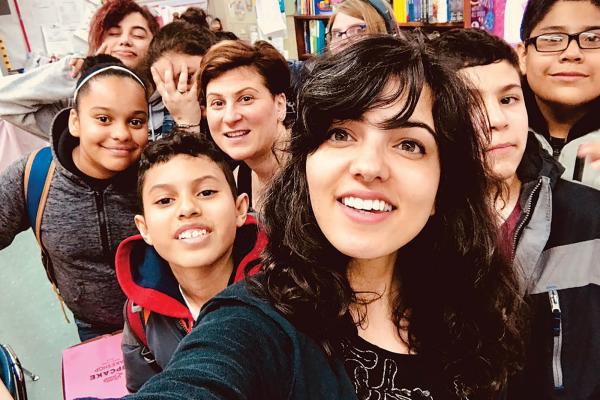LAURA KIM TELLS an illustrative story in the Race/Related newsletter published by The New York Times about a white boss who responded to her request for promotion by saying, “You’re so good at what you do. I thought you wanted to stay in your position forever ... Normally, Asian women keep their heads down and stay very quiet.”
It is the kind of story that professional, middle-class Asian Americans are telling more and more these days. Stereotyped as determined and technically competent, but not especially creative, we might be the kind of people you’d want as your accountant or computer expert, but we are definitely not management material. In my experience, Kim’s story rings true, but it’s not the only true story about Asian-American experiences.
I think that’s one of the reasons I found Fatima Farheen Mirza’s debut novel, A Place for Us, about an immigrant South Asian Shia Muslim family in post-9/11 California, so interesting. As part of a South Asian Shia Muslim community myself (the Ismaili community), the various religious references (to Imam Ali and Imam Hussain, to the presence of the Quran as a protection) felt both familiar and comforting.
Equally familiar, if less comforting, were the family dynamics. The lives of the children were governed by rules written by religious tradition, maintained by family, and enforced by the broader community.
The kids largely viewed the white world outside the home as a place of freedom, a world where you could choose your own path of study, select your own romantic partner, and go to parties, all without the prying eyes of your parents and the wagging fingers of community members. At home, at the mosque, at Muslim events, you bore the burden of your tradition. Your words and deeds represented your parents at all times.
I remember this well. My middle-class, suburban, South Asian friends and I spoke often about the freedoms of the white world. Why were we pressured to be doctors and engineers when other kids were told only to dream big dreams—and without even being expected to finish their homework? Why were our parents so uptight about the opposite sex? Why did we carry the burden of their reputations?
Mirza’s novel has a striking scene about racism. It involves a fight that Amar (the only son and youngest child) gets into when he faces a pack of boys in the locker room who taunt him about his Muslim faith.
Racism was something I and the other suburban South Asians I knew experienced daily growing up, but rarely talked about. Instead, we simply accepted its existence, like the change of seasons. On rare occasions the racism went from microaggression to macroaggression, and we felt as if we needed to fight to preserve a shred of dignity, but mostly we just kept our heads down and endured it.
A significant improvement in the diversity discourse of our era is to name that racism—both the smaller slights and the egregious violations—and to declare all of it out of bounds.
But what too much diversity discourse in the Trump era misses is how minority communities themselves, and not just the broader white culture, pass judgments and assign roles, judgments and roles that can often feel more constricting than the ones on offer in the wider world.
Among the many challenges of being a South Asian Muslim is negotiating all of this complexity. Appreciating the tradition that you come from but chafing against its restrictions. Wanting the freedoms of the white world, while frequently feeling as if you are a stranger there.

Got something to say about what you're reading? We value your feedback!






